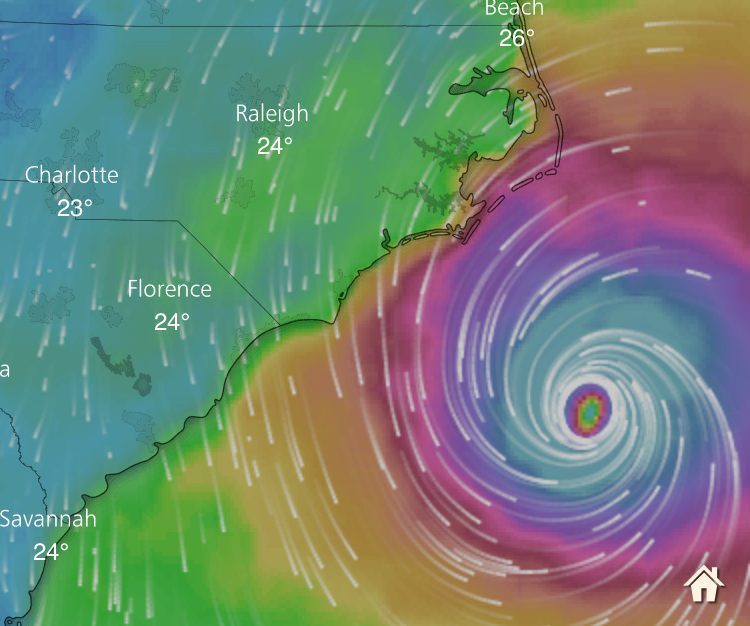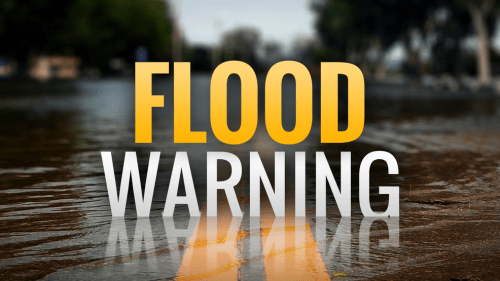How to Prepare for Flooding

Image: Windy.com
As the Mid-Atlantic coast braces for Hurricane Florence’s landfall, residents in North and South Carolina are preparing for “a major flooding event,” with storm surges, mudslides, and widespread power outages expected.
The Department of Homeland Security’s website provides information about planning ahead for natural disasters. This How to Prepare for a Flood document is available on the website, and a few of the most critical tips are listed below:
- Know your flood risk: Learn whether you live, work, or travel through areas
that are prone to flooding. To help communities understand their risk of flooding,
the Federal Emergency Management Agency creates flood maps to show the locations of high-risk, moderate-to-low risk, and undetermined risk areas. To check your flood risk, enter your address here. - Know the Five Ps of Evacuation: People/Pets, Prescriptions, Papers, Personal Needs, and Priceless Items
- Stay Informed: Listen to local area radio, NOAA radio or TV stations for the latest information and updates.
- Stay Stocked: Check your emergency kit and replenish any items missing or in short supply, especially medications or other medical supplies. Keep it nearby. Move valuable items and papers/documents to upper floors.
- Staying Safe Indoors
- Turn off the power and water mains if instructed to do so by local authorities.
- Boil tap water until water sources have been declared safe.
- Avoid contact with floodwater. It may be contaminated with sewage or contain dangerous insects or animals.
- Continue listening to local area radio, NOAA radio or TV stations for the latest information and updates.
- Don’t use gas or electrical appliances that have been flooded.
- Secure/bring in outdoor furniture or other items that might float away and become a potential hazard.
- Dispose of any food that comes into contact with flood water .
- Staying Safe Outdoors
- Don’t walk, swim or drive through floodwater. Just six inches of fast-flowing water can knock you over and two feet will float a car.
- If caught on a flooded road with rapidly rising waters, get out of the car quickly and move to higher ground.
- Don’t walk on beaches or riverbanks.
- Don’t allow children to play in or near flood water.
- Avoid contact with floodwater. It may be contaminated with sewage or contain dangerous insects or animals.
- Stay out of areas subject to flooding. Underpasses, dips, low spots, canyons, washes, etc. can become filled with water.






